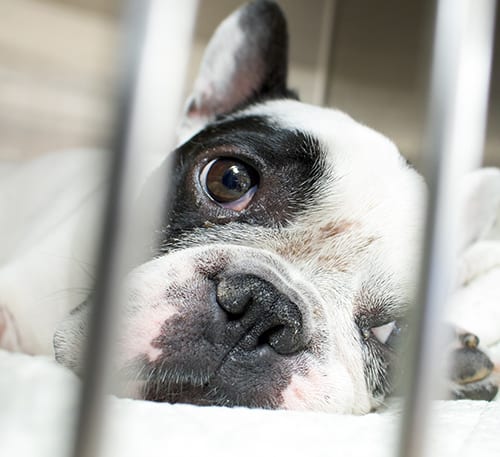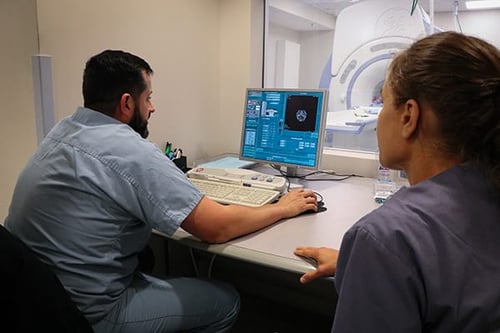Why Is My Dog Acting Drunk and Wobbly?
What do you do when, all of a sudden, your dog starts walking around like he has had a few too many martinis? The term for this uncoordinated gait is “ataxia,” and the type of ataxia that causes dogs to walk like they are drunk is called a “vestibular ataxia.” The vestibular system, or balance system, in dogs is composed of two parts: the peripheral portion, or the inner and middle ear, and the central portion, or the parts of the brain that control the balance system.

Other signs that can be seen in a dog with vestibular dysfunction include abnormal, rapid eye movements (called nystagmus), the head tilting to the side, walking in circles, falling or rolling toward one side, or nausea and vomiting.
What are the causes for vestibular dysfunction in dogs?
There are a variety of causes for vestibular dysfunction in dogs, depending whether the inner/middle ear (peripheral vestibular system) or the brain itself (central vestibular system) appears to be affected.
Potential causes include inner/middle ear infections, intoxication, strokes, tumors, infectious or inflammatory diseases (meningitis), idiopathic vestibular disease (also called “old dog” vestibular syndrome), or other less likely causes.
How is the cause of vestibular dysfunction diagnosed?
The first step in looking for a cause of vestibular dysfunction is having your pet evaluated with a veterinarian, to differentiate vestibular disease from other causes of incoordination.
Baseline diagnostic testing, including blood work and x-rays may be recommended. If vestibular disease is suspected, a neurologic examination with a veterinary neurologist is the next step. Your neurologist may recommend an MRI, which is the test of choice to evaluate both the inner and middle ear and the brain and look for an underlying cause of vestibular dysfunction.

Depending what the MRI shows, this is often paired with a spinal tap to look for evidence of inflammation (meningitis). Additional testing may be recommended following these tests, based upon the results.
How is vestibular dysfunction treated?
Treatment of vestibular dysfunction depends on the underlying cause. Inner/middle ear infections are treated with long courses of systemic (oral) antibiotics, and occasionally require obtaining culture samples from the middle ear by puncturing through the ear drum (myringotomy) and flushing the contents.
Evaluating your pets history can help determine whether toxicity could be playing a role. Pets diagnosed with strokes should have additional testing performed to look for an underlying cause that can predispose them to having strokes.
Cancerous processes can be treated with medication, radiation therapy, or occasionally surgical intervention. Infectious or inflammatory diseases can be managed with medications. Idiopathic vestibular syndrome is a diagnosis of exclusion, meaning it is diagnosed if no underlying cause for vestibular dysfunction is found on MRI and spinal fluid analysis,
What is the prognosis for dogs with vestibular disease?
Prognosis depends on the underlying cause of vestibular dysfunction. With appropriate intervention and treatment, many pets can improve quickly with time and supportive care; however, some pets may have persistent signs of dysfunction.
The most common persistent deficit is a residual head tilt, but we think this makes pets look cute and curious!
There are many causes of vestibular dysfunction in dogs. Many of these causes can be treated with medications, but some may progress if not evaluated and treated early.
This is why you should call a neurologist at Southeast Veterinary Neurology in Miami, Boynton Beach, Jupiter, or Virginia Beach right away if your pet is showing signs of vestibular dysfunction (drunken/wobbly walk).